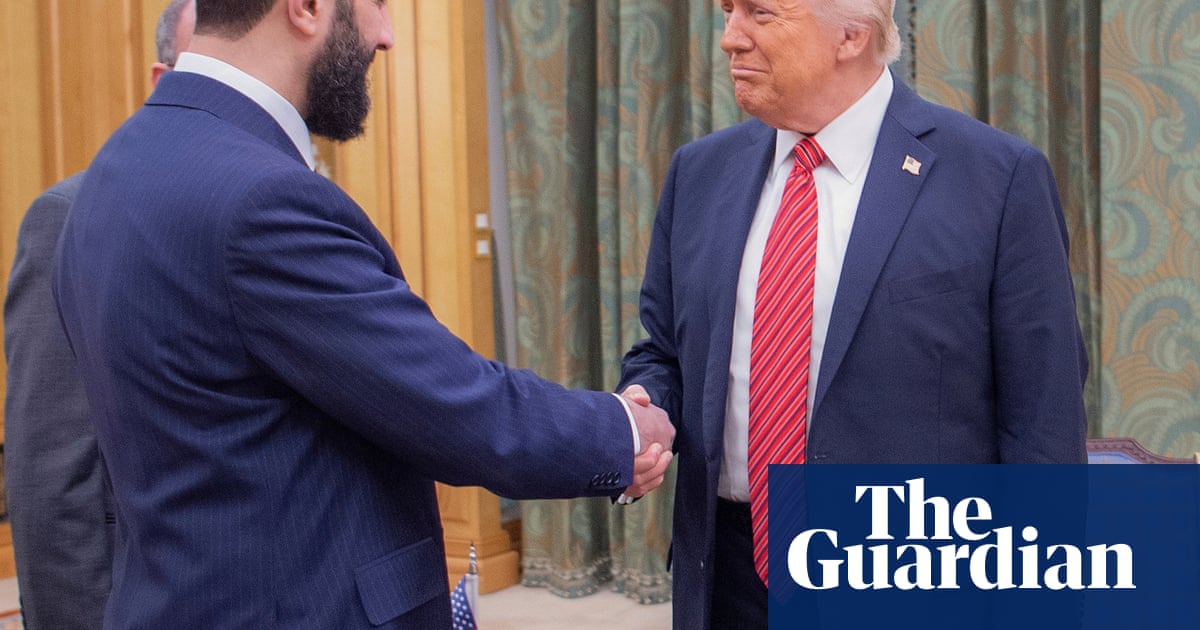For beleaguered and divided congressional Democrats desperate to find an effective line of attack against Donald Trump, news that the US president’s national security team discussed plans to bomb Yemen on a widely available messaging app in the presence of a journalist came at just the right time.
The leak has put the White House and the Republicans on the defensive, generated multiple days of aggressive media coverage and forced top officials to publicly twist themselves in knots as they seek to explain – or downplay – the blunder.
It has also unified the Democrats at a time when they have seemed split on how to combat the Trump administration’s radical agenda and has even allowed some Republicans to join them in criticizing the White House. On Thursday, the top Republican and Democrat on the Senate armed services committee jointly asked the defense department’s acting inspector general to investigate the leak.
“If true, this reporting raises questions as to the use of unclassified networks to discuss sensitive and classified information, as well as the sharing of such information with those who do not have proper clearance and need to know,” the Republican Roger Wicker and the Democrat Jack Reed wrote.
Up until this week, Trump had been on something of a roll ever since he returned to the White House two months previously. He has used legally dubious methods to remake the US government while encountering no resistance from his party to his policies or cabinet picks, after the Republicans locked down control of both the Senate and House of Representatives in the November elections.
Then came news that the president’s national security team – joined inexplicably by the editor-in-chief of the Atlantic, Jeffrey Goldberg – had convened on the Signal messaging app to debate and coordinate airstrikes on the Houthi armed group in Yemen. Goldberg promptly wrote about his experience watching the attack planning play out in real time, and then, after denials and attacks on his character from the Trump administration, released a transcript of the chat.
Not 24 hours after the story broke, the director of national intelligence, Tulsi Gabbard, and the CIA director, John Ratcliffe, began two days of annual congressional testimony on global threats facing the United States – during which Democrats argued the most pressing threat was them discussing war plans in front of a journalist, using an app known to be targeted by Russian hackers.
“This was not only sloppy and not only violated all procedures, but if this information had gotten out, American lives could have been lost,” Mark Warner, the top Democrat on the Senate intelligence committee, said when Gabbard and Ratcliffe testified on Monday.
“I think that it’s by the awesome grace of God that we are not mourning dead pilots right now,” his House counterpart, Jim Himes, said when the pair appeared before that chamber’s intelligence committee on Tuesday.
The national security chiefs repeatedly minimized the severity of the leak. Despite the fact that the defense secretary, Pete Hegseth, shared precise timings of strikes and aircraft to be used, Gabbard insisted that what had been discussed was not classified, while Ratcliffe revealed that CIA employees were allowed to use Signal.
Their obligated testimony completed, the pair have since retreated from the Capitol, and with them could go the scandal’s momentum. Democrats are in the minority in Congress, which means they can’t issue subpoenas or compel testimony from those involved in the chats, limiting their ability to uncover new details of the leak.
The ball now appears to be in the Republicans’ court, where there have been some signs of the scandal overcoming their deference to the new president. “I do recommend being candid on sending classified info on unsecured servers. Take responsibility [and] stop digging the hole,” Don Bacon, a retired air force brigadier general who represents a Nebraska district in the House, wrote on X.
Trump, meanwhile, has shown no interest in disciplining Hegseth, nor Michael Waltz, the national security adviser who added Goldberg to the group for reasons he could not quite explain. Even after the release of the chat transcript, White House officials continued denigrating Goldberg and arguing that officials did nothing wrong.
“At the end of the day, this is – in my opinion – something that they’re making a big to-do about nothing,” Alina Habba, Trump’s outgoing White House counselor, told journalists on Wednesday, adding that Goldberg was “a reporter that is trying to get clout”.
While the use of Signal is novel, allegations of mishandling classified information have lately become something of a recurring scandal in Washington. Trump was nearly put on trial for it, and Joe Biden and Mike Pence both faced federal inquiries when it turned out they had taken materials from the White House they should not have.
Hillary Clinton, who was criticized unendingly by Republicans during her presidential campaign for her use of a private email server, quipped after the Signal story broke: “You have got to be kidding me.”
Seth Masket, director of the University of Denver’s Center on American Politics and author of a book examining the Democrats’ recovery from Clinton’s defeat, said in an interview that since Trump had made clear he picked his cabinet members for their loyalty, his refusal to dismiss anyone over the chat could backfire.
“That sense of loyalty means that everyone knows that if they get into trouble, as long as they continue to not apologize and repeat their faith in Donald Trump, he won’t ask for them to step down, and it just makes the scandal keep going,” Masket said.

 3 months ago
67
3 months ago
67

















































